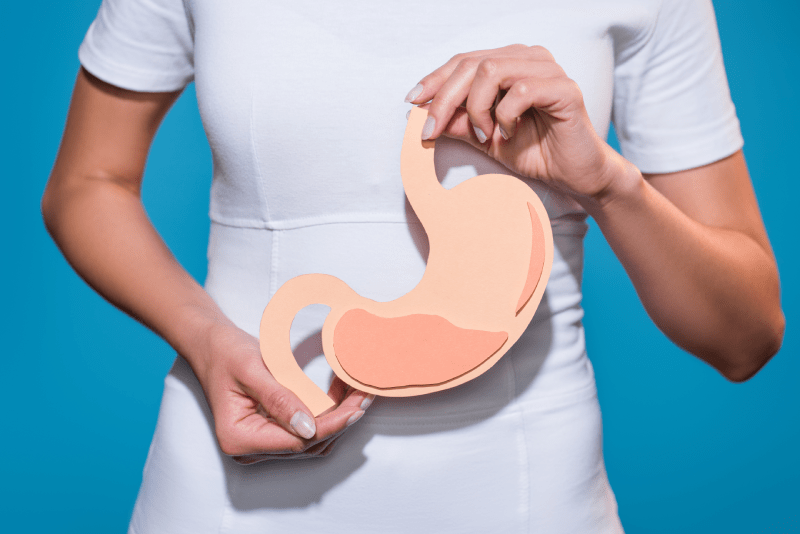What is obesity surgery?
Obesity surgery, medically known as bariatric surgery, is a series of surgical procedures that enable morbidly obese individuals to regain their health and improve their quality of life. These surgeries aim to treat serious health problems such as type 2 diabetes, hypertension, and sleep apnea that arise from a high Body Mass Index (BMI), rather than for purely aesthetic concerns. The surgeries promote weight loss by reducing stomach volume and/or decreasing nutrient absorption.
Who can have obesity surgery?
Obesity surgeries are generally recommended for individuals who have been unable to lose weight with traditional methods like diet and exercise, and who have a BMI of 40 or higher. Additionally, individuals with a BMI between 35 and 39.9 who have significant obesity-related health issues such as type 2 diabetes, high blood pressure, joint problems, or sleep apnea may also be candidates for surgery. The decision to proceed with surgery is typically made by a multidisciplinary team including a surgeon, a dietitian, and a psychologist.
Which surgical methods are used?
There are three main surgical methods most commonly used in obesity surgery: sleeve gastrectomy, gastric bypass, and mini gastric bypass. In sleeve gastrectomy, a large portion of the stomach is removed, while in gastric bypass, the stomach is reduced and a new connection is made to the small intestine. Mini gastric bypass works on a similar principle but is a simplified procedure.
What tests are performed before surgery?
The pre-operative process is critical to ensure the patient is physically and mentally ready for the operation. This includes comprehensive blood tests to assess the patient’s overall health and organ function, a cardiological evaluation to check heart health, endoscopy to examine the digestive system, and a detailed abdominal ultrasound. These tests help to minimize potential risks.
Is there an age limit for surgery?
The general age range for obesity surgery is between 18 and 65. However, these limits can be flexible. In cases of adolescent obesity and in some special circumstances, surgery may be decided for individuals under 18, while patients over 65 can also undergo surgery if their general health condition is suitable. These decisions are made based on each patient’s specific circumstances and with the approval of the surgical team.
What is the main purpose of the surgery?
The main purpose of obesity surgery is not just weight loss for aesthetic reasons. The primary goal is to eliminate or alleviate life-threatening diseases caused by obesity. These surgeries can change the body’s hormonal balance, which can lead to the remission of type 2 diabetes, lower high blood pressure, and improve respiratory problems like sleep apnea. This significantly improves the overall health and quality of life for patients.
Sleeve gastrectomy: what is it?
Sleeve gastrectomy, medically known as sleeve gastrectomy, is a surgery in which approximately eighty percent of the stomach is irreversibly removed. After this operation, the remaining part of the stomach becomes a thin tube-like shape, resembling a banana. This allows the patient to consume less food and also reduces the production of ghrelin, a hormone that controls appetite. As a result, both a physical feeling of fullness and a decrease in appetite occur.

What is gastric bypass surgery?
Gastric bypass is a surgery that both restricts food intake and reduces nutrient absorption. In this procedure, a small pouch is created in the upper part of the stomach, and this pouch is connected to a middle section of the small intestine. As a result, consumed food bypasses a part of the digestive system and goes directly to the lower part of the small intestine. This leads to both lower calorie intake and less nutrient absorption.
What is the difference between sleeve gastrectomy and gastric bypass?
The main difference between the two surgeries is that gastric bypass also alters the intestinal system. In sleeve gastrectomy, a large portion of the stomach is removed, but the intestines are not touched. In contrast, in gastric bypass, the stomach is reduced and a portion of the small intestine is bypassed. Gastric bypass generally yields more effective results in patients with additional conditions like type 2 diabetes and reflux, while sleeve gastrectomy is an option with a lower risk of vitamin deficiency.
Which method is more suitable for me?
This decision is made by your surgeon after a comprehensive evaluation. Your doctor will consider many factors, such as your BMI, overall health status, existing health conditions (especially diabetes and reflux), eating habits, and lifestyle, to determine the most suitable method for you. This decision is a process that is entirely personalized and aimed at finding the most medically appropriate solution.
What are the advantages of sleeve gastrectomy?
Sleeve gastrectomy has many advantages. Firstly, the surgical procedure is simpler and shorter than gastric bypass. Additionally, since the intestines are not intervened with, the risk of vitamin and mineral deficiency after surgery is lower. The body’s nutrient absorption is less affected, so the patient goes through a more comfortable adaptation process. This surgery is a good alternative for patients who are hesitant about anatomical changes to their intestinal system.
What are the advantages of gastric bypass?
One of the most significant advantages of gastric bypass surgery is its high effectiveness in treating type 2 diabetes. Thanks to metabolic changes after the surgery, patients’ blood sugar levels can return to normal. Furthermore, this method can generally result in more weight loss than sleeve gastrectomy. Gastric bypass can also help reduce the symptoms of reflux in patients with severe reflux complaints.
How long does the surgery take?
The duration of an obesity surgery varies depending on the type of surgical method, the patient’s body structure, and the surgeon’s experience. Generally, sleeve gastrectomy takes 1 to 2 hours, while more complex operations like gastric bypass can take 2 to 3 hours. This duration does not include the pre-operative preparation and post-operative observation period.
How long is the hospital stay?
The length of the hospital stay after surgery depends on the type of operation and the patient’s recovery speed. Generally, patients stay in the hospital for 2 to 4 days after the surgery. During this time, nurses and doctors closely monitor the patient’s condition, watch for any potential complications, and provide the necessary education to help the patient adapt to their new dietary plan.
Will there be pain after the surgery?
Since obesity surgeries are generally performed using a laparoscopic (keyhole) method, post-operative pain is minimal. There may be some slight tenderness and discomfort at the surgical site, but this can be easily controlled with pain medication. Patients can usually start moving around shortly after the surgery and can return to their normal activities.
What should post-operative nutrition be like?
Post-operative nutrition is vital for success. For the first few weeks, the diet consists entirely of liquids, followed by a transition to pureed foods. After that, solid foods are slowly introduced to allow the digestive system to adapt to the new situation. During this process, it is critically important for the patient to be closely monitored by a dietitian to ensure adequate protein and vitamin intake.
When can I return to my normal life?
Most patients can return to their daily lives and work within 1-2 weeks after the surgery. However, it is important to avoid heavy lifting or work that requires intense physical activity. It is generally necessary to wait 4-6 weeks before starting more strenuous exercise programs. This timeline can vary depending on the individual’s recovery rate and the surgeon’s recommendations.
How much weight is lost after surgery?
Weight loss usually begins rapidly after the surgery. Patients can lose between 60 and 80 percent of their excess weight within the first one to two years. The amount of weight loss can vary depending on the type of surgery, the patient’s diet, exercise habits, and overall metabolism. The effects of the surgery reach their highest level when supported by lifestyle changes.
Is hair loss normal after surgery?
Yes, it is quite normal to experience temporary hair loss after surgery due to the body going into a type of shock from rapid weight loss. This is a process where the body tries to adapt to the new situation and usually slows down and returns to normal after a few months. To manage this, the vitamin supplements recommended by the doctor should be used regularly.
Why are vitamin and mineral supplements important?
After bariatric surgery, the risk of vitamin and mineral deficiency increases due to the reduced stomach volume and/or the altered path of nutrient absorption. Therefore, supplements of essential nutrients like vitamin B12, iron, vitamin D, and calcium may need to be taken. These supplements are usually used for life to prevent potential deficiencies and maintain the patient’s long-term health.
Can pregnancy be planned after surgery?
It is possible to plan a pregnancy after surgery, but the timing is important. It is recommended to wait at least 1-2 years after the surgery for the body to complete the weight loss process, replenish nutrient stores, and stabilize hormonal balance. During this time, being under a doctor’s supervision is of great importance for the health of both the mother and the baby.
Are there risks to obesity surgery?
Like any surgical procedure, obesity surgeries carry some risks. These include general risks that may arise during and after the surgery, such as bleeding, infection, reactions to anesthesia, and pulmonary embolism. In addition, bariatric surgery-specific complications such as leakage or stricture at the surgical site can also occur. These risks are very low with today’s modern surgical techniques.
What is the most important risk, “leakage”?
“Leakage” is one of the most serious but rare complications of bariatric surgery. This occurs when stomach contents leak into the abdominal cavity from the cut or reconnected part of the stomach. This condition leads to a serious risk of infection and requires immediate medical intervention. Early diagnosis and treatment are vital for successfully managing this complication.
Can the stomach stretch after surgery?
Yes, the stomach can stretch again over time if the post-operative dietary rules are not followed and portion control is lost. Especially the habit of overeating or constant snacking can cause the new stomach volume to be strained and to expand. This can lead to a halt in weight loss and even weight regain, reducing the effectiveness of the surgery.

What is “dumping syndrome”?
“Dumping syndrome” is a condition that occurs especially in patients who have undergone gastric bypass surgery. It happens when foods high in sugar or fat pass quickly into the small intestine. Symptoms include nausea, vomiting, diarrhea, abdominal cramps, palpitations, and sweating. This syndrome is an important warning mechanism that encourages patients to avoid unhealthy foods.
Why is psychological support important after surgery?
The rapid physical changes experienced after obesity surgery also bring a range of emotional and psychological processes. Patients may find it difficult to adapt to their new bodies and changing social lives. Psychological support during this period can help manage eating disorders, build self-confidence, and adapt to the new lifestyle, supporting the lasting success of the surgery.
Is reaching an ideal weight guaranteed after surgery?
Obesity surgery is not a magic solution that guarantees reaching an ideal weight. Success largely depends on the lifestyle changes the patient makes after the surgery. The surgery is a powerful tool that facilitates the weight loss process, but if healthy habits like regular nutrition and exercise are not adopted, weight can be regained. Therefore, the patient’s active participation is essential.
What is the weight maintenance process like?
The weight maintenance process begins after the initial rapid weight loss phase in the first year after surgery. During this period, it is vital for the patient to continue their healthy eating habits, exercise regularly, and attend follow-up doctor’s appointments. To maintain weight control in the long term, it’s necessary to reduce portion sizes, pay attention to protein intake, and avoid high-calorie, processed foods.
When and how should exercise be done after surgery?
Post-operative exercise is an important part of the recovery process. Patients can start with short, light walks as soon as they are discharged from the hospital. This helps to speed up recovery and increase blood circulation. With the surgeon’s approval, more intense exercises like swimming or cycling can be started after 4-6 weeks. Regular physical activity after surgery contributes greatly to both weight control and overall health.
What is the difference between non-surgical methods and surgery?
Non-surgical methods, such as a gastric balloon or gastric botox, are procedures that do not require a surgical incision and are less invasive. However, these methods generally result in less weight loss and their effects are temporary. Surgeries, on the other hand, make permanent anatomical changes to the stomach, leading to much more significant and long-term weight loss. Non-surgical methods may be preferred for individuals who are not suitable for surgery or who aim for less weight loss.
What determines the cost of obesity surgery?
The cost of obesity surgery varies depending on many factors. These factors include the type of hospital where the surgery is performed (private, public, or university hospital), the surgeon’s experience and expertise, the quality of medical materials used in the surgery, and any additional treatments and tests that may be needed depending on the patient’s overall health.
Should state hospitals or private hospitals be preferred for surgery?
The success of the surgery depends more on the experience of the surgical team and the equipment of the hospital rather than the type of hospital. Both public and private hospitals have experienced teams specializing in bariatric surgery that have performed successful operations. The important thing is to make sure that the surgeon who will perform your surgery is a competent and reliable expert in the field.
What is revision surgery?
Revision surgery is a second operation performed after the initial obesity surgery due to insufficient weight loss, stomach stretching, or serious complications. This procedure is a more complex surgery aimed at correcting the patient’s anatomy and helping them reach their weight loss goals. The decision for revision surgery is made based on the patient’s condition and why the first surgery was unsuccessful.
Is aesthetic surgery needed after the operation?
A large portion of patients who experience significant weight loss require aesthetic surgery due to sagging skin. These surgeries include procedures such as a tummy tuck (abdominoplasty), arm lift, and breast lift. These operations make it easier for the patient to adapt to their new body shape and improve their quality of life. Aesthetic operations are usually planned after weight loss has stabilized.
How often should a doctor’s check-up be done after surgery?
Post-operative check-ups are of vital importance for the patient’s health. During the first year, frequent check-ups are generally recommended (at the 1st, 3rd, 6th, and 12th months). After the first year, annual routine check-ups may be sufficient. During these check-ups, the patient’s weight status, eating habits, and vitamin/mineral levels are monitored to prevent potential problems.
Is alcohol consumption forbidden after obesity surgery?
Alcohol consumption should be strictly limited after obesity surgery. After the surgery, alcohol absorption is faster and its effects can be more severe. Due to the sensitivity of the stomach and intestinal system, alcohol can damage the stomach and lead to dumping syndrome. Therefore, it is recommended to completely avoid alcohol consumption for the first few months and to be very careful even after that.
What are the food restrictions after surgery?
In the post-operative period, high-calorie, sugary, and fatty foods should be strictly avoided. Carbonated drinks, easily digestible and high-calorie snacks, and junk food are forbidden. Instead, it is important to eat a protein-rich diet with plenty of vegetables and fibrous foods, to keep portions small, and to eat slowly. These rules are the cornerstones for lasting weight loss and a healthy life.
Does obesity surgery definitively solve obesity?
Obesity is a chronic disease, and bariatric surgery is a powerful tool that helps manage it. The surgery does not completely eliminate obesity, but it makes it easier for the patient to lose weight and prevent weight regain. For lasting success, one must see the surgery as the beginning of a lifestyle change and adopt healthy eating and regular exercise habits.
Is weight regain possible after surgery?
Yes, weight regain is possible after surgery. Surgery is not a standalone solution. If the patient does not follow the recommendations of the doctor and dietitian, returns to unhealthy eating habits, and neglects physical activity, weight regain can occur even years later. Therefore, adherence to post-operative follow-up and lifestyle changes is critical for long-term success.
What is the most important factor in this entire process?
The most important factor in the obesity surgery process is the collaboration between the multidisciplinary team of the patient, surgeon, and dietitian. The patient must understand that the surgery is a starting point and must adopt a lifelong healthy lifestyle. Regular post-operative check-ups, nutritional counseling, and psychological support are the key elements that guarantee success on this journey.



